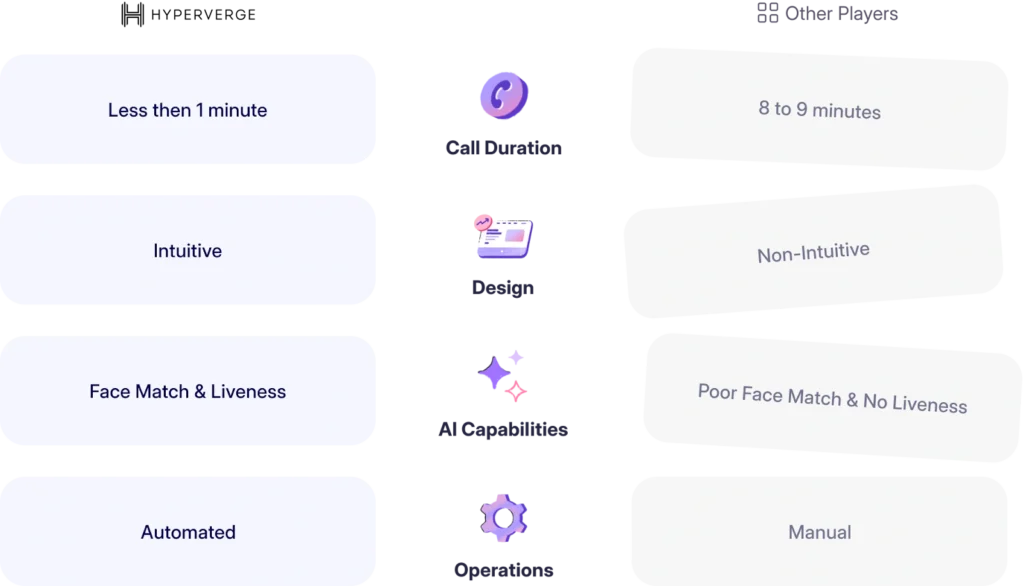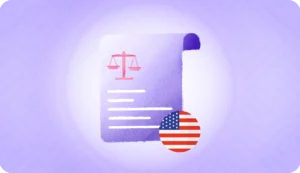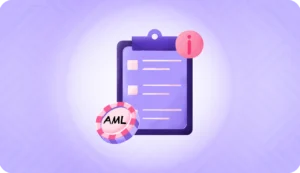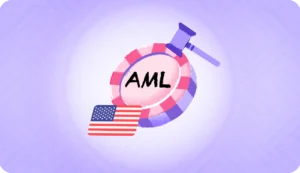The events of September 11, 2001, changed the course of American life forever. As the US grappled with the aftermath of the attacks, new priorities emerged–chief among them, national security. In response, the U.S. government, led by George W. Bush passed the USA PATRIOT Act just 45 days later, without any debate, aiming to strengthen defenses against future threats.
Officially known as the ‘UNITING AND STRENGTHENING AMERICA BY PROVIDING APPROPRIATE TOOLS REQUIRED TO INTERCEPT AND OBSTRUCT TERRORISM (USA PATRIOT ACT) ACT of 2001, the legislation granted unprecedented powers to law enforcement agencies, allowing them to monitor and intercept communications, access financial records, and detain individuals suspected of connections to terrorism.
For businesses, especially those in finance, telecommunications, and transportation, the USA PATRIOT Act introduced far-reaching compliance requirements. Businesses were required to implement stricter security protocols and customer identity verification procedures. And, although these measures were intended to protect the public, they’ve sparked debates about privacy, government overreach, and the balance between security and civil liberties.
In this blog, we uncover how the US PATRIOT Act continues to impact American businesses and the criticisms it faces more than two decades after its enactment.
How Does the USA PATRIOT Act Impact Businesses?
Enacted in response to the 9/11 attacks, the USA PATRIOT Act introduced sweeping changes to numerous existing laws, particularly those governing financial institutions. Compliance requirements were tightened, and anti-money laundering regulations became more stringent.
Let’s take a closer look at how these changes have impacted businesses across the United States.
1. Increased compliance requirements
To effectively counter terrorism, it’s crucial to cut off the financial resources fueling it. That’s why the USA PATRIOT Act emphasizes stringent compliance and reporting requirements for financial institutions.
Title III of the USA PATRIOT Act, particularly Section 326, places direct obligations on financial institutions to verify customer identities through ‘Know Your Customer’ (KYC).
Key provisions in Section 326
KYC requirements: Section 326 mandates financial institutions implement a Customer Identification Program (CIP) as part of their anti-money laundering (AML) compliance. This program establishes guidelines for authenticating a customer’s identity, checking if they’re affiliated with known terrorist organizations, and regularly verifying information about existing customers.
Risk-based identity verification: Each CIP must include a risk-based process for verifying a customer’s identity. This approach considers factors such as:
- The type of account being opened
- Information legally accessible to the institution
- The institution’s size, location, and customer base risk profile
Other Sections
- Customer verification: Section 311 mandates the comparison of customer data to prevent unverified foreign accounts.
- Due diligence: Section 312 requires both standard and enhanced due diligence for all U.S. banks and foreign entities to detect suspicious activities.
- Restrictions on shell banks: Section 314 prohibits shell banks without a physical presence from accessing U.S. financial systems to reduce money laundering risks.
- AML programs: Section 352 requires institutions to establish AML frameworks, appoint compliance officers, and conduct independent audits.
To know more, read A Definitive Guide to AML Compliance and A Complete Guide On Compliance Laws & Regulations
2. Reporting obligations
Financial institutions are required by law to report any activity that they suspect might involve money laundering or terrorist financing.
When a financial institution notices suspicious activity, especially when it involves $5,000 or more, it must file a Suspicious Activity Report (SAR) with the Financial Crimes Enforcement Network (FinCEN). This obligation applies if the transaction is suspected to be related to illegal activities such as money laundering, fraud, or terrorist financing.
Plus, under Subtitle B-Bank Secrecy Act (BSA) Amendments, financial institutions must submit a report for any cash deposits or withdrawals that exceed $10,000. This requirement also includes “structured” transactions—when multiple smaller transactions are made in a way that totals over $10,000.
These are all reported to the FinCEN through Currency Transaction Reports (CTRs).
| Did you know the September 11 hijackers utilized both U.S. and foreign financial institutions to manage their funds, depositing cash and wire transfers into U.S. accounts. They accessed overseas accounts via ATMs and credit cards, with the entire operation costing al-Qaeda between $400,000 and $500,000, including about $300,000 channeled through U.S. banks! |
3. Information sharing and cooperation
The US government emphasizes collaboration between financial institutions, regulatory bodies, and law enforcement to strengthen defenses against terrorism and money laundering.
Regulations mandate that authorities share vital information with financial institutions about individuals or entities suspected of such activities. These rules will streamline information sharing on specific topics, including how terrorist groups fund operations globally and within the U.S., often using charities and nonprofits. Additionally, financial institutions will identify accounts or transactions related to these groups, helping prevent misuse.
Also read: A Complete Guide on Global Watchlist Screening
4. Impact on foreign banking relations
TITLE III-INTERNATIONAL MONEY LAUNDERING ABATEMENT AND ANTI-TERRORIST FINANCING ACT OF 2001 under the USA PATRIOT ACT affects how foreign banks interact with U.S. financial institutions.
It establishes stricter due diligence, requiring U.S. banks to carefully vet foreign banks with correspondent accounts, especially those in high-risk jurisdictions.
This increased scrutiny can lead to strained relationships with foreign banks that do not meet U.S. standards, potentially limiting their access to the U.S. financial system. Additionally, the prohibition on maintaining accounts for foreign shell banks and the ability to seize funds can create distrust among foreign institutions. These measures, though aimed at national security, complicate international banking partnerships.
5. Penalties for non-compliance
Defying an act that fights terrorism can earn businesses more negative press than they’d like.
Financially, mon-compliance with the USA PATRIOT Act can lead to severe penalties, reaching up to $1 million per incident, while civil fines can go up to $250,000. Individuals with serious violations could also face prison time and seizure of assets.
The overarching impact
At its core, the USA PATRIOT Act fundamentally altered how privacy was viewed in the United States. Its requirements for information sharing improve anti-money laundering compliance, yet businesses struggle with the complexities of regulation.
Striking a balance between effective surveillance and protecting individual rights is crucial to maintaining public confidence and ensuring that security measures do not infringe upon the liberties they were designed to protect.
Don’t forget to check out: What Is Regulatory Compliance: Meaning & Importance
Ready for smarter AML compliance?
Explore HyperVerge’s AI-powered solutions to keep your business secure without sacrificing privacy. Schedule a DemoWhat are the Biggest Criticisms of the USA PATRIOT Act?
Government surveillance powers
The major criticism of the USA PATRIOT Act is its dramatic expansion of government surveillance powers, allowing agencies to monitor phone calls, emails, credit reports, and more without a traditional warrant. This provision means the government can collect data on individuals without their knowledge or consent.
For instance, NSLs (National Security Letters) can be issued by the FBI without a judge’s order to scan an individual’s personal records, phone numbers, bank details, and more.
Between 2003-2006, the FBI issued nearly two lakh NSLs, which led to just ‘one’ terror conviction! Moreover, the USA PATRIOT Act does not require NSLs to destroy data after the procedure is completed, meaning the data is stored forever.
Privacy concerns
Critics believe that the USA PATRIOT Act directly challenges the 1st and 4th Amendments of the U.S. Constitution. The 1st Amendment protects free speech, while the 4th Amendment guards against unreasonable searches and seizures without a warrant and/or notification.
Under the USA PATRIOT Act, federal agencies can delay search notices and conduct ‘sneak-and-peek’ searches of homes or offices. This means that agencies don’t have to immediately inform individuals when their property is searched.
Many argue that these measures infringe on personal freedom and privacy (as they allow extensive surveillance with limited oversight), and violate Americans’ constitutional rights. Furthermore, these indirect surveillance may target certain groups more than others. Marginalized communities, such as people of color and immigrants, often face more scrutiny, raising questions about fairness and bias.
Lack of transparency
The lack of transparency is another pressing criticism of the USA PATRIOT Act. Many of the act’s provisions are classified, so the public cannot fully understand how these powers are being used.
For instance, think of the FISA Act. The Foreign Intelligence Surveillance Act (FISA) was established to regulate government surveillance, especially after abuses were revealed during the Nixon era.
However, amendments to the USA PATRIOT Act allowed broader surveillance, including of U.S. citizens, specifically, Section 215 which permitted agencies to request private records without needing strong evidence of a crime, lowering the standard for obtaining warrants.
This shift led to fears about unchecked government access to personal information and a total breach of privacy. In 2015, Section 215 of the Act was replaced by the USA FREEDOM Act, which sought to curb some of the surveillance practices. However, critics argue these changes didn’t go far enough to protect people’s rights.
For a democracy to function effectively, citizens must understand how different laws impact their lives. When the government lacks transparency, it becomes challenging for citizens to trust its intentions and actions, leading to feelings of disconnect and frustration.
While many Americans view the USA PATRIOT Act as a tool for combating terrorism, others argue that it violates human rights and unfairly treats ordinary citizens as suspects. To this day, the act remains a contentious topic, sparking debate about its effects on privacy, freedom, and transparency.
Conclusion
The USA PATRIOT Act divides academia and lawmakers into two camps: those who view the act as an infringement on freedom and those who believe that security must take priority over all else.
New York City Mayor Rudy Giuliani once stated that Americans must use every legal tool to fight terrorism while the American Civil Liberties Union (ACLU) claimed that the Act has fundamentally reduced civil liberties and encouraged racial profiling and hate crimes.
In between the two camps, experts and the public emphasize the need for reforms to ensure that citizens’ rights are protected while still addressing genuine threats.
For businesses navigating such complex compliances, solutions like HyperVerge can help. As an AI-powered identity verification platform, HyperVerge offers industry best compliance through real-time screening and monitoring, and risk identification, allowing organizations to verify identities while safeguarding privacy.

What’s more? HyperVerge ensures high-grade encryption of user details to prevent data and privacy breaches. To safeguard your business and leverage advanced tech for your compliance needs visit HyperVerge AML Solution today.
FAQs
1. What is the biggest criticism of the USA PATRIOT Act?
The biggest criticism of the USA PATRIOT Act is that it infringes on civil liberties. Many people believe it gives the government too much power to surveil and monitor citizens without proper oversight. This can lead to violations of privacy rights, racial profiling, and a general feeling of mistrust among the public.
2. How does the USA PATRIOT Act impact businesses?
The USA PATRIOT Act affects businesses by increasing compliance requirements, especially for financial institutions. Companies must implement strict customer verification processes and report suspicious activities. This can create additional costs and responsibilities, but it also helps protect businesses from being used for illegal activities like money laundering and terrorism financing.
3. How can businesses comply with the USA PATRIOT Act while protecting customer privacy?
Businesses can comply with the USA PATRIOT Act and still protect customer privacy by using secure technology for data management. They should implement clear privacy policies, limit data collection to what is necessary, and ensure that customer information is only shared with authorized personnel. HyperVerge is a partner businesses can rely on to be perfectly compliant with US regulations and more.





